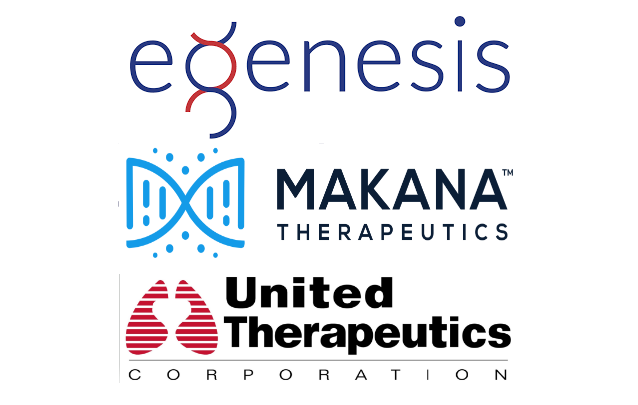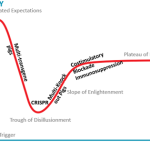Three US Companies are Leading the Way, eGenesis, Makana, and United Therapeutics along with a few international efforts.
US Leaders

eGenesis is the most recent but possibly most promising biotechnology company aimed at commercializing xenotransplantation.
eGenesis spun out from George Church’s lab at Harvard.
After initial gene editing successes in the lab, eGenesis has transitioned into a fully functional biotech company led by veterans from the Boston biotech scene.
To date, over $250M of investments have flowed into the eGenesis war chest from the likes of ARCH Ventures, dialysis supplier Fresenius, Bill Gates related investment fund Biomatics Capital, and pharma multinational Bayer.
eGenesis recently announced first line results from their definitive preclinical trial, a new manufacturing facility, and plans to begin a clinical trial of xenografts in the next year.

In 2011, United Therapeutics (UTHR) entered the xenotransplantation space by purchasing a Revivicor, one of the early pioneers in genetically modified swine.
UTHR enlisted Craig Venter’s team at Synthetic Genomics Inc (SGI) to modernize Revivicor’s gene editing techniques.
UTHR’s pigs were used as organ donors for a compassionate use case of a pig to human heart transplant done at the University of Maryland in early 2023. While the poor condition of the patient before transplant was a contributing factor to his eventual demise, no hyperacute rejection was seen.
Most recently, UTHR announced an over $100M investment into a manufacturing facility to produce pigs that would supply the pent up demand for kidneys to transplant.

Makana Therapeutics is a spin out from the academic lab of renowned transplanter Joe Tector.
Tector’s group discovered what is now known as the “triple knock out” pig that is now the basis of all xenotransplantation efforts worldwide.
Makana has the best record of long term survival in the pig-to-rhesus preclinical model of xenotransplantation.
Rumor is that Novartis and Baxter, two multinationals, have backed Makana. Novartis and Baxter were the main investors in the early part of the hype curve of xenotransplantation in the 1990’s. Makana’s support from both companies is notable because Novartis and Baxter have in depth experience in discerning what it takes to get xenotransplantation across the finish line.
International Efforts
Three international programs are challenging the Americans including xTransplant in Germany, GenNBio and Optipharm in South Korea, and NZeno in New Zealand.
Germany
xTransplant in Germany is an outgrowth of Bruno Reichart’s heart transplant practice. They are by gar the most advanced at genome editing outside of the US.
South Korea
The Korean companies GenNBio and Optipharm emanate from a government-supported focus on xenotransplantation. The Korean government support is notable.
New Zealand
NZeno was created by veterans from the earlier work in xeno-cell transplant in the 1990s and early 2000s done in New Zealand by Living Cell Technologies.
Access to the pathogen free Auckland Island pigs and a regulatory system that has been favorable to xenotransplantation are the most notable advantages to NZeno.
China
The Chinese have been hampered by repeated local outbreaks of African Swine Fever, however they have a long standing interest in xenotransplantation. There are up to 5 different groups in China working on beating the Americans to the clinic.
Summary
The race is on across the world to fulfill the promise of organ replacement using a xenogenic solution. This is strong support to the idea that xenotransplantation has gotten past the ‘valley of death’, a term coined in the past for the trough of disillusionment seen in technical advances.












